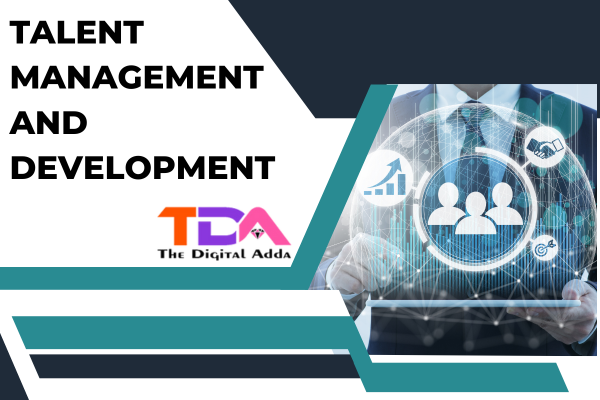Talent Management and Development Certification
Talent Management and Development (TMD) is a strategic approach to attracting, retaining, and developing skilled and high-potential employees to meet current and future organizational needs. It encompasses a range of HR practices aimed at maximizing the potential of employees and ensuring that the organization has the talent it needs to achieve its strategic objectives. Key aspects of TMD include:
- Talent Acquisition: Identifying and recruiting individuals with the skills, competencies, and values necessary for organizational success.
- Employee Onboarding: Facilitating the integration of new hires into the organization and providing them with the necessary tools and resources to succeed.
- Performance Management: Setting clear expectations, providing feedback, and evaluating employee performance to support ongoing development and improvement.
- Training and Development: Offering learning opportunities and career development programs to enhance employee skills, competencies, and knowledge.
- Succession Planning: Identifying and developing potential future leaders and key employees to ensure continuity and sustainability.
- Employee Engagement: Fostering a positive work environment and culture that motivates employees to perform at their best and contribute to organizational success.
- Retention Strategies: Implementing initiatives to retain top talent and address turnover challenges.
- Leadership Development: Investing in programs to develop leadership capabilities at all levels of the organization.
Key Components
- Strategic Alignment: Aligning talent management practices with the organization’s overall strategic goals and objectives.
- Performance Metrics: Establishing key performance indicators (KPIs) to measure the effectiveness of talent management initiatives and their impact on organizational performance.
- Continuous Improvement: Continuously assessing and refining talent management processes to adapt to changing business needs and market dynamics.
- Employee Feedback: Soliciting feedback from employees to understand their needs, preferences, and aspirations and incorporating it into talent management strategies.
- Technology Integration: Leveraging HR technology and analytics to streamline talent management processes and make data-driven decisions.
- Cross-Functional Collaboration: Collaborating with other departments, such as finance, operations, and marketing, to ensure that talent management strategies are integrated with broader organizational strategies.
Where It Is Used
Corporate Sector
- Talent Acquisition: Corporations focus on attracting and retaining top talent to gain a competitive advantage in the market.
- Employee Development: Corporate training and development programs aim to enhance employee skills, competencies, and career prospects.
- Succession Planning: Companies identify and develop future leaders to ensure organizational continuity and sustainability.
Small and Medium-sized Enterprises (SMEs)
- Talent Retention: SMEs implement initiatives to retain key employees and address turnover challenges.
- Employee Engagement: SMEs focus on creating a positive work culture to motivate employees and enhance productivity.
Public Sector
- Government Agencies: Public sector organizations invest in talent management and development to enhance workforce effectiveness and service delivery to citizens.
- Leadership Development: Government agencies develop leadership capabilities to address succession planning needs and drive organizational performance.
Nonprofit Organizations
- Volunteer Management: Nonprofits rely on effective volunteer management strategies to engage and retain volunteers who support their mission.
- Capacity Building: Nonprofits invest in employee training and development to strengthen organizational capacity and achieve social impact.
Healthcare Industry
- Workforce Planning: Healthcare organizations address workforce shortages and plan for future staffing needs through talent management initiatives.
- Clinical Training: Hospitals and clinics offer clinical training programs to enhance the skills and competencies of healthcare professionals.
Education Sector
- Faculty Development: Educational institutions invest in faculty development programs to enhance teaching effectiveness and student outcomes.
- Student Services: Universities and colleges provide career development services to prepare students for the workforce.
Hospitality and Tourism
- Employee Training: Hospitality businesses offer training programs to enhance customer service skills and improve guest experiences.
- Career Development: Hotels and resorts provide career advancement opportunities to attract and retain talented employees.
